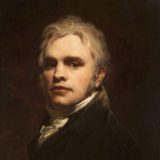In part one of this series of four essays, I asked whether we are compelled by our times to understand sorcery—their sorcery, and our own.
Let’s begin with the latter. Professor Harry Jaffa in a Thomistic tradition maintained that the morality of the Bible in no way contradicted the morality of the rationalism of the Declaration of Independence, which unfolded in the Constitution and in the history of the United States culminating in a new birth of freedom, through the struggle of the Civil War, rhetorically in the Gettysburg Address and legally in the 13th, 14th, and 15th Amendments.
Elevating American history to the level of the Hebraic history of the Old Testament, each an expression of reason and God’s providential will, Jaffa made a case for American exceptionalism and chosenness.
The magic of what Jaffa had brewed was one of the divine origin of the United States. The founding fathers and Abraham Lincoln stood in for the gods of the ancient regime, establishing a “civic religion” and associated pieties that shaped the civic mores of the American people. But they also had to shape the private mores of the American people, because as Washington had noted in his Farewell Address, “Of all the dispositions and habits which lead to political prosperity, religion and morality are indispensable supports.”
The particularity of this civic religion sprang from a more generalized notion of civic divinity, that of the Declaration of Independence. The Declaration appealed not to individuated gods but to Nature and Nature’s God—to rationalism. Unaided human reason in simple terms—Lincoln compared them to Euclid—could understand the rights of man and the origin of good government, consent, by reasoning from laws promulgated by a passive Nature’s God and an even more passive Nature.
Because the particularized civic religion is populated by actual men who left historical footprints for scholars to ruminate, denigration unfolds over time. Familiarity, as the adage goes, breeds contempt. Washington was a slaveholder, Jefferson was a bankrupt who kept an enslaved concubine, Hamilton was an adulterer, Lincoln was a racist, and so on. Thus the more durable of these civic religions almost inevitably would become the rational principles of the Declaration, and not the mythicized accounts of the founders.
If the civic religion of the United States tends to degrade into the generalized rational principles of the Declaration, does the Declaration have an even shorter half-life as a teacher of civic and private morality necessary for republican government?
We can think on this using Jaffa’s own Thomistic method. St. Thomas notes in the Summa Theologica why reason is an inadequate ground of popular wisdom:
Even as regards those truths . . . which human reason could have discovered, it was necessary that man should be taught by a divine revelation because the truth . . . such as reason could discover, would only be known by a few, and that after a long time, and with the admixture of many errors.
No popular regime, it would seem, can sustain civic piety based on reason alone because too few will grasp the truth of it and even those few who grasp it will infuse it with error.
In the run up to the Civil War, Lincoln would write of the Declaration of Independence:
All honor to Jefferson—to the man who, in the concrete pressure of a struggle for national independence by a single people, had the coolness, forecast, and capacity to introduce into a merely revolutionary document, an abstract truth, applicable to all men and all times, and so to embalm it there, that today, and in all coming days, it shall be a rebuke and a stumbling-block to the very harbingers of re-appearing tyranny and oppression.
He says this after noting the widespread erroneous interpretation: “others insidiously argue that they apply only to ‘superior races.’”
If equality could be sincerely misconstrued in the context of permanent racial chattel slavery, what serious prospect is there of its popular reasoned application to more subtle manifestations of despotism? The answer is, observing casually the claims made about equality that drive fanatical upheavals of private morality—mores which ground the household, the building block of civil society—it hasn’t a chance.
To say this is not to repudiate the truth of the Declaration. It is to say that in the context of forming a popular opinion supporting a republican government reasoned from its principles, the magic is gone. And to reiterate, the same is true of a mythicized pantheon of founders, in no small part because the commitment to reason of the former explodes the mythology of the latter.
We should touch on another problematic aspect. In The Federalist Publius, the mouthpiece of Alexander Hamilton, James Madison, and John Jay, suggests that the older the Constitution becomes the more it will be considered venerable. While Washington in his Farewell Address warns against usurpations, he similarly urges a habit of regarding the Constitution as sacred. Today we no longer have amendments to the Constitution—the last was really 1971, almost two generations ago—and unsurprisingly the Constitution is now, as a result, widely ignored. The equivalent of amendments imposing sweeping social change are instead effected by the courts. And it is not just shifting rights; Congress hardly legislates, but the executive and judiciary do, and very openly. The result is a charter that is both disregarded and unchangeable, paradoxically at once lawless and rigid.
One last magical thing to note: conservatives—whose ambitions are largely limited to low taxes and regulation—insist that fetishizing the Constitution will resolve political issues and restore the old regime, especially if their donors join them at one more paid conference or paid cruise.
This sorcery doesn’t work.

